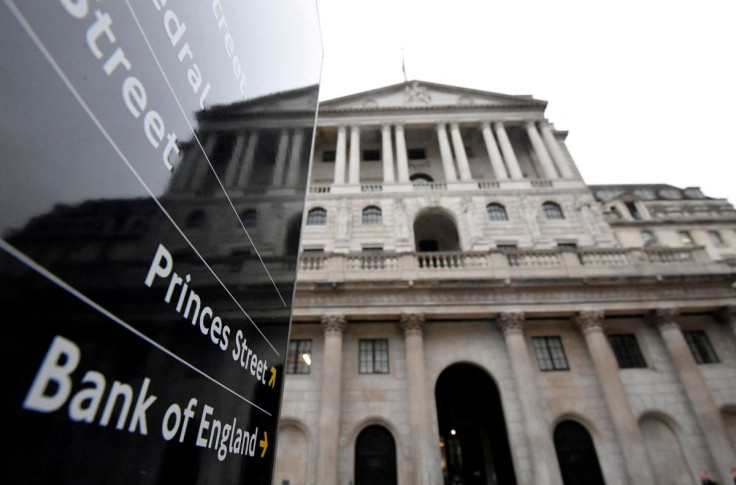Bank Of England Tells Lenders To Brace For Economic Storm

The Bank of England warned on Tuesday that the economic prospects for Britain and the world had darkened since the start of the year and told banks to ramp up capital buffers to ensure they could weather the storm.
International institutions, such as the International Monetary Fund and OECD say Britain is more susceptible to recession and persistently high inflation than other Western economies, which are all grappling with global energy and commodity market shocks.
"The global economic outlook has deteriorated markedly. Global financial conditions as a whole have tightened significantly," Bank of England Governor Andrew Bailey told a news conference after the BoE published its half-yearly Financial Stability Report (FSR).
Developments around the war in Ukraine would also be key, the BoE added.
British banks were well-placed to weather even a severe economic downturn, the central bank said, although it said their capital ratios - while still strong - were expected to decline slightly in the coming quarters.
Members of the Financial Policy Committee confirmed that the BoE will double the counter-cyclical capital buffer rate to 2% of risk weighted assets in July next year, and said it could vary the rate in either direction depending on how the global economy pans out.
The rate represents an extra buffer for banks such as HSBC, Barclays, Lloyds Banking Group and NatWest that varies depending on the economic outlook.
Increasing the buffer to 2% means banks will need an additional 11 billion pounds ($13.2 billion) of capital, the BoE said.
Despite a worsening cost-of-living crunch, with inflation heading towards double digits, the BoE said banks were resilient to debt vulnerabilities among households and businesses.
The central bank also expressed unease over the health of core financial markets - such as U.S. and British government bonds - which were the subject of the March 2020 "dash for cash" when the COVID-19 pandemic prompted panic selling.
"Amid high volatility, liquidity conditions deteriorated even in usually highly liquid markets such as U.S. Treasuries, gilts and interest rate futures," the BoE said.
It said core British markets - while still functional - had become more expensive to trade, with bid-ask spreads on short-dated gilts more than doubling compared with their 2021 average.
"(Conditions) could continue to deteriorate, especially if market volatility increases further," the BoE said.
The central bank also said it would conduct an in-depth analysis of the functioning of the commodities market, with metals trade severely disrupted in March by Russia's invasion of Ukraine.
The central bank said it would begin its 2022 stress test of banks - delayed due to the war - in September, with the results likely in mid-2023.
($1 = 0.8307 pounds)
© Copyright Thomson Reuters 2024. All rights reserved.







